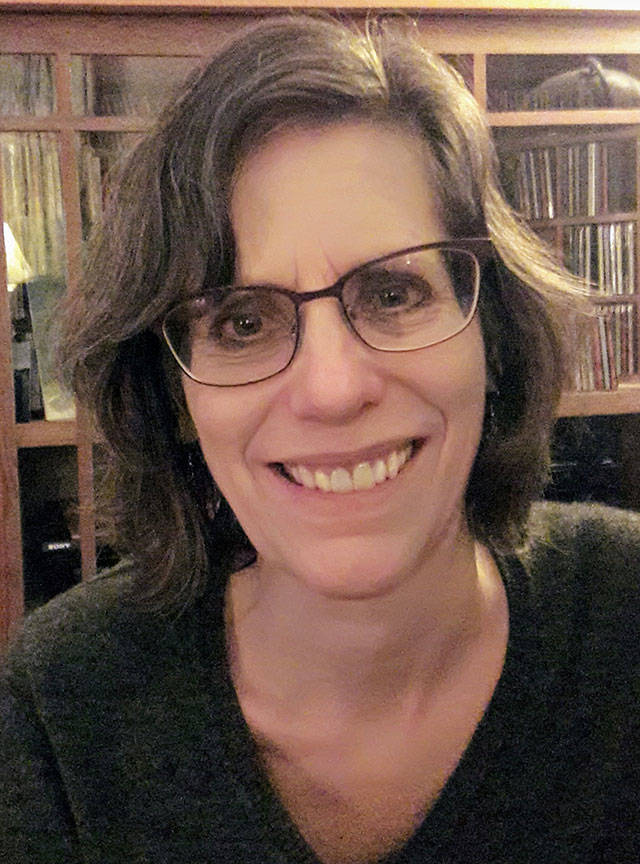Questions about sustainability surfaced frequently several years ago when Vashon Allied Arts, as it was called at the time, was striving to raise millions of dollars to build a new performing arts center for the island.
How would VAA, a small organization that ran close to the bone, sustain such a building? How would it ensure ticket prices remained affordable? How would it retain its grass-roots, community-based feel?
On several occasions, I was told the community needn’t worry. Kay White, the benefactor whose generosity was helping to bankroll the effort, had earmarked a $6 million to $8 million fund as an ongoing reserve to ensure sustainability.
In one story I wrote, I quoted VAA staff as referring to it as an “irrevocable trust,” a “sustainability fund” and “a kind of endowment.” In another, I reported that this reserve would “ensure the center’s long- term viability, keep ticket prices from escalating and enable financially lean organizations to rent the facility.”
Two weeks ago, during a standing-room- only meeting in the lobby of the new Vashon Center for the Arts, community members again asked about sustainability. No mention was made of this endowment.
And when Elizabeth Shepherd, reporting on behalf of The Beachcomber, asked board and staff members about it, she heard differing accounts about what had happened to it — including a statement from Susan Warner, the organization’s executive director, that all but $1 million of it had been used to cover construction costs.
Why does this matter? It matters because nonprofits hold the public trust. As civic institutions, they receive government grants, tax exemptions, public support and more. This is their social capital. They trade on our goodwill.
This organization, in particular, asked the community — again and again — to support its vision for a new arts center. In return, they said, they had a plan to keep it sustainable. As a reporter covering the story, I heard it as a promise to the community. Was it not? And if it turned out that the costs of the building had escalated to the point that they had to dissolve that special fund and use it for construction, did they not have an obligation to let the community know? I believe so. I believe that’s what it means to hold the public trust.
I want Vashon Center for the Arts, as it now calls itself, to succeed. I want it to be a source of creative energy and artistic vibrancy. I want it to be a community hub. And at times, it is all these things. VCA brings fantastic performers to Vashon, and the theater — as promised — is both attractive and comfortable. It continues to showcase Vashon talent. Its artists-in- the-schools program appears to be thriving.
But what I saw at the meeting earlier this month was an organization that seems to have lost its way. Visual artists — for decades the foundation of this organization — no longer feel respected. The Heron’s Nest was closed with scant communication with the community that supported it. Financial concerns abound.
It’s hard to know the full story behind VCA’s financial situation because the organization’s Form 990, an IRS tax form nonprofits are required to make public, provides only a limited picture of income and expenses. (VCA’s 2017 Form 990 is due in May.) But news articles published over the course of the project’s life help to make clear what happened. When first announced, the new center was going to cost $11 million. Then $16.5 million. Then $18 million. At the town hall two weeks ago, board members referred to it as a $21 million arts center.
We live in a world of cost overruns. These things happen, especially in our region’s over-heated economy. The people behind the construction of this building were (and are) well-intentioned islanders — smart, committed, civic-minded.
At the same time, there are lessons to be learned here. Lessons about listening. About asking hard questions. About remembering one’s roots. Those issues were at play at the meeting when islander after islander asked about the closure of the Heron’s Nest, the state of the Blue Heron, the annual art auction, the frequency of gallery exhibits, staff accessibility and more. Underneath the emotion —and there was much emotion — was a message: Listen to us. Pay attention. We have something to contribute.
The board pledged to listen. Board Chair Denise Katz apologized for the organization’s poor communications. Kevin Joyce, the facilitator, began a list for a new artists’ advisory group.
It felt like a moment of reckoning for an organization this island has long embraced.
— Leslie Brown is a former editor of The Beachcomber.



